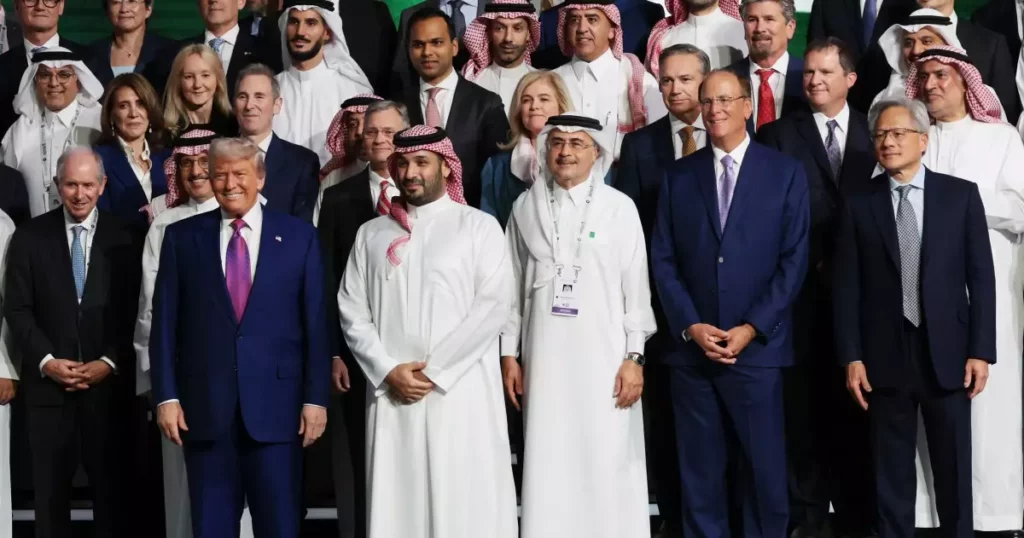Nvidia’s strategy to dominate the AI chip market is not just a corporate ambition; it is significantly influenced by an intricate interplay of technological innovation and geopolitical maneuvering. In a rapidly transforming digital landscape, where advancements happen in the blink of an eye, Nvidia has deftly repositioned itself to remain ahead of rivals, whether they may be local startups or international giants. The lifting of export restrictions on U.S.-made AI semiconductors emerges as a strategic pivot, seemingly tailor-made for Nvidia’s benefit but reflective of broader national interests to maintain technological superiority. The alignment between corporate desires and governmental policy underscores a critical reality: innovation cannot be separated from international relations, and those who master this balance are likely to thrive.
Risky Business: The Rescinded Regulations
The U.S. Department of Commerce’s recent retraction of the Artificial Intelligence Diffusion Rule not only weaponizes market competition; it represents a tacit admission of the dangers posed by heavy-handed regulations. Such restrictions could stifle creativity and innovation, jeopardizing the United States’ leadership role in the AI sector. Indeed, with Nvidia’s staggering 90% market share, any governmental effort to limit its growth could ultimately be a self-inflicted wound on the nation’s technological might. Critics have valid points; these kinds of regulations can work against the very objectives they seek to support. By doing away with restrictive hurdles, the government seems to be aiming for a free-market strategy, albeit a selective one that has a distinct favoritism for Nvidia.
Political Engagement: A New Corporate Landscape
The evolving relationship between Jensen Huang, Nvidia’s CEO, and the Trump administration exemplifies a noteworthy shift in corporate-political dynamics. Initially, Huang kept his distance during Trump’s presidential campaign, but the increasing convergence of business objectives with political discourse signals a recalibration. For Huang, meeting Trump in Riyadh is more than just a diplomatic gesture; it’s a strategic alliance with potentially substantial payoffs for both parties. By fostering ties with government leaders, Nvidia is not only advocating for favorable policies but is embedding itself deeper into the machinery that dictates technological progress. This represents a pragmatic approach that mirrors the reality of the stakes involved in the AI race—an negotiation of interests between the corporate realm and national strategy.
The Huawei Challenge: An Unfolding Rivalry
As Nvidia consolidates its position, competitors like Huawei loom large, with their Ascend processors challenging the very essence of Nvidia’s offerings. The rapid rise of Huawei as a contender in the AI chip space is alarming enough that U.S. authorities have swiftly warned against utilizing Huawei technology. This intervention signals a national prioritization of safeguarding domestic companies, even at the expense of fair competition. It is not merely about who can create the best chips; it highlights a philosophical schism where national security overlaps with the tech race. Nvidia appears poised not only to defend its current market stronghold but to actively reshape the landscape of AI technology to erect barriers against emerging challengers.
Navigating a Complex Landscape
This dichotomy of opportunity and challenge presents Nvidia with a unique set of dilemmas as it endeavors to expand its footprint in AI innovation. Far from passively enjoying market dominance, Nvidia’s ambitions stretch to actively participating in the shaping of policies that govern its industry. The company’s dealings with governmental entities reflect a growing trend within the technology sector: the intertwining of corporate goals with national interests. While critics of such alliances may raise ethical concerns regarding the commercialization of political influence, the truth is that in today’s technologically-driven world, such connections may be unavoidable.
Ethics at a Crossroads
With the blurring of lines between technology and politics, ethical questions arise with considerable weight. Is it prudent for tech companies to entwine so closely with political machinations? Some might argue that it muddies the waters of innovation with lobbying and special interests. Yet, in a world where actions are driven by outcomes, Nvidia’s strategies seem to echo the prevailing logic of survival. This reality unearths troublesome implications for the tech ecosystem at large, as ambitions of innovation are shadowed by questions of integrity.
As Nvidia continues to drive forward, its trajectory will likely illustrate whether the alignment of corporate and governmental strategies can yield progress without compromising ethical governance. The complexity of today’s technological landscape necessitates a forthright approach in navigating challenges, and while Nvidia’s tactics may serve immediate interests, the repercussions will be felt far beyond the corporate walls.









Leave a Reply